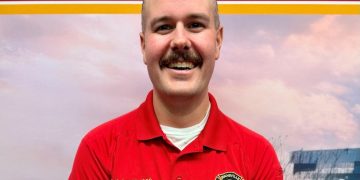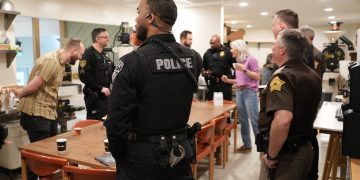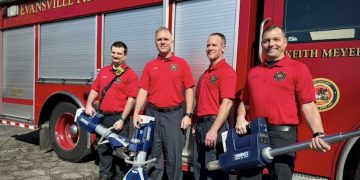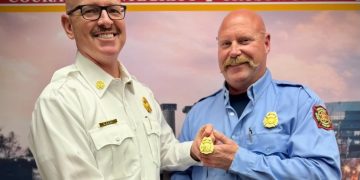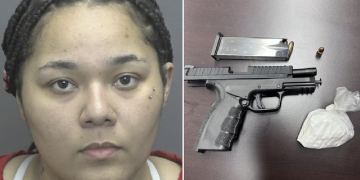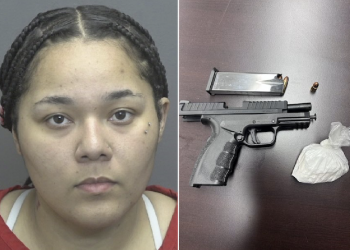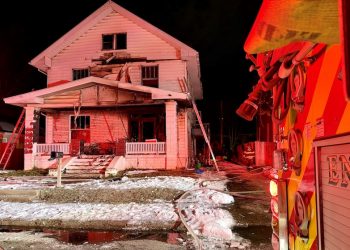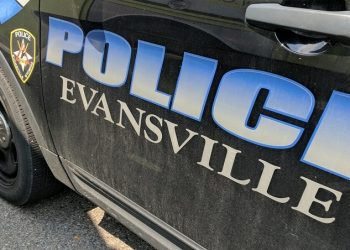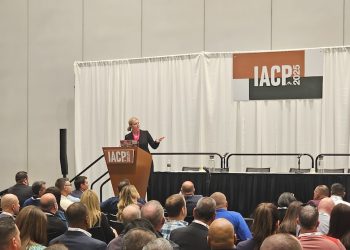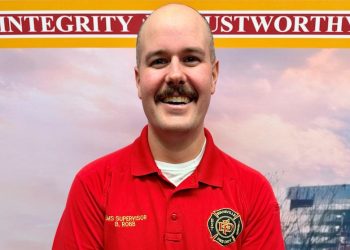Before he was identified as the suspect and the only person killed in the Christmas morning explosion in Nashville, Tennessee, Anthony Warner, according to people who knew him, was a loner who had recently retired as an information technology consultant.
Warner, 63, died when his recreational vehicle exploded in a blast that rocked downtown Nashville, injuring at least three people and damaging more than 40 businesses. Warner was identified as the bomber after authorities said that they had matched DNA from the scene to Warner and that an identification number from the RV matched a vehicle registered to him.
“He was a loner,” Schmoldt said. “I never saw anybody go into his house. I never saw him have anybody over.”
But Warner was friendly to him and his wife, he said. They would sometimes interact while Warner was working in his yard or on his property.
“I never really saw him in a dark mood,” Schmoldt said.
Warner had several dogs over the years that he “loved” and “really took good care of,” he said.
“I’ll be honest with you, the way he took care of his dogs, I got the impression he wouldn’t harm a flea. Even if some people thought he was odd, to me he was completely harmless,” he said.
Investigators said Warner’s RV was parked outside an AT&T building on Christmas morning. It exploded at 6:30 a.m. local time as police officers were responding to reports of gunfire in the area. Responding officers heard a warning of an imminent explosion coming from a speaker system in the RV. The officers also heard the vehicle broadcasting the song “Downtown” by Petula Clark.
“The last couple of days, of course, I’ve been trying to think through my head why he would feel like he had to do that, but I didn’t know him that well to come to any kind of conclusions,” Schmoldt said. “I never thought he would do something like this, but that’s the kind of world we’re living in now, I guess.”
Warner signed away his property on Bakertown Road in Antioch the day before Thanksgiving to a woman in Los Angeles for $0, property records of a quitclaim deed show.
Before the explosion, he told a woman that he had cancer, multiple senior law enforcement officials said Sunday. It was unclear whether that was true, the officials said, but Warner gave the woman his car. The officials did not identify the woman. An FBI spokesperson said agents are investigating all aspects of the case.
Warner this month told Fridrich & Clark Realty, where he had worked as a contractor, that he was retiring, Steve Fridrich, the company’s president and managing partner, said in a statement Monday.
Fridrich said a “computer consultant named Tony Warner has worked as an independent contractor” for the company for several years.
Fridrich said that Warner had advised the company this month that he was retiring and that the company had not had contact with him since then.
“Upon learning that Tony is a suspect in the bombing on 2nd Avenue on Christmas morning, Fridrich & Clark notified the authorities that he had provided IT services to our firm,” Fridrich said. “The Tony Warner we knew is a nice person who never exhibited any behavior which was less than professional.”
Warner had one arrest for possession of marijuana for resale by the Metropolitan Nashville Police Department in January 1978, according to a state arrest record released by the Tennessee Bureau of Investigation. Other state records show that Warner was charged with felony drug possession in 1978 and was sentenced to two years’ probation.
The FBI tamped down expectations Monday that a motive would be determined as quickly as they were able to determine the identity of the apparent suicide bomber.
The U.S. attorney’s office and the FBI previously said they were able to use Warner’s DNA, the bombing vehicle’s VIN and tips from the public to determine the identity of the bomber less than 48 hours after the explosion, which crippled AT&T’s service in the region.
The FBI said Monday that it would not be able to determine the motive that quickly.
The FBI said numerous interviews were being conducted with associates of Warner to try to develop a better picture of who he was and what his background was.
It was also trying to develop a comprehensive timeline and sequence of events in Warner’s life and the sequence of events in the days and hours leading up to the explosion.
FBI spokesperson Jason Pack said: “We are in the early stages on determining a motive. FBI and ATF Agents are still collecting evidence from the scene and conducting numerous interviews, which our team will need to analyze.














